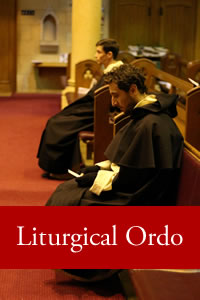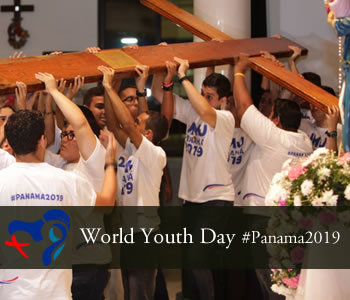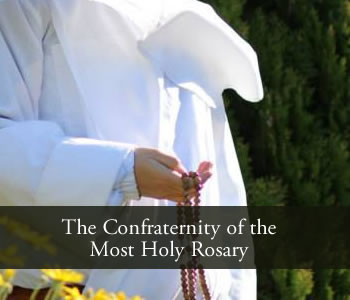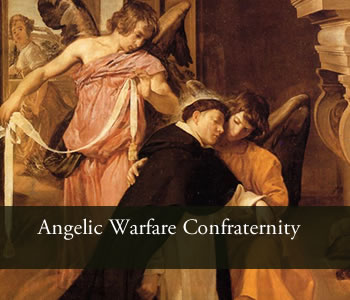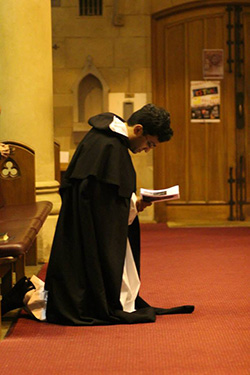 Every follower of Christ must remember that to follow Him he must "deny himself and take up his cross daily." Dominican life contains many practices drawn from tradition by St. Dominic that structure and strengthen this self-denial through common discipline; collectively they are known as regular observance. Outstanding among these elements are the common life, the celebration of the liturgy and private prayer, the observance of the vows, the assiduous study of truth, and the apostolic ministry. To fulfil them faithfully, we are helped by cloister, silence, the witness of the habit, and penitential practices.
Every follower of Christ must remember that to follow Him he must "deny himself and take up his cross daily." Dominican life contains many practices drawn from tradition by St. Dominic that structure and strengthen this self-denial through common discipline; collectively they are known as regular observance. Outstanding among these elements are the common life, the celebration of the liturgy and private prayer, the observance of the vows, the assiduous study of truth, and the apostolic ministry. To fulfil them faithfully, we are helped by cloister, silence, the witness of the habit, and penitential practices.
The Dominican friar, eager to follow Christ more closely through pastoral and apostolic service, regards regular observance highly, cherishes it in his heart, and strives to put it into effect. Entering a way of life that is aimed at the perfection of charity, it is only to be expected that these means of holiness laid down by Christ are resolutely adopted. From the earliest history of religious life, works of penance, especially fasting and abstinence, held a very important place. In later developments of religious life, this penitential element was preserved but carefully regulated so that extremes might be avoided which would hamper rather than help progress towards perfection.
Fasting, abstinence and bodily penances were very dear to St. Dominic and became a noted feature of his Order. Our Constitutions prescribe for the friar days of fasting and abstinence. However, from the very beginning of the Order, the prudential practice of dispensation has been adopted by superiors when they judge it to be expedient, especially in whatever might hinder study, preaching, and the good of souls. In this regard, superiors are mindful of the words of St. Thomas: "Bodily mortification is pleasing to God only when it is regulated by balanced judgement; it is meant to master unruly passions, not to crush human nature." In an age and culture that has become obsessed by food, our Rule challenges us to cultivate not so much the mouths that take food for us, but the ears that hunger for the Word of God.
Regular observances also provide for the religious the silence so necessary for life with God. The individual cell of each friar enables him to find that quietude of spirit which is conducive to hearing the voice of God through prayer and study. Silence secures for the friar, whose priory may be in the heart of the city, that advantage of solitude which the early monks and hermits secured for themselves by retiring to a remote or desert place. It is in this silence that one is best disposed to respond to the inspirations of the Holy Spirit: For God alone my soul waits in silence, for my hope is from him (Ps 62:5).
